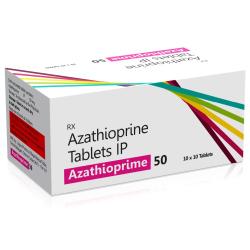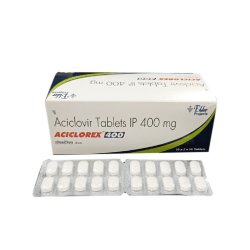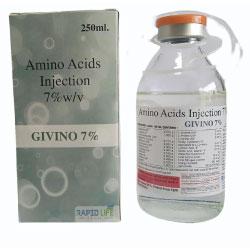Description
Azathioprine (AZA), an immunosuppressive antimetabolite, is available as a tablet for oral administration for the symptomatic treatment of active rheumatoid arthritis (RA). This therapeutic medication also has approval as adjunctive therapy for the prevention of kidney transplant rejection.
Dosage and Side Effects
The recommended dosage for kidney transplant rejection (on behalf of the immunosuppressive regimen employed) is up to 5 mg/kg body weight per day and may be given orally on the first day of therapy. Maintenance dosage should range from 1 to 4 mg/kg body weight daily and must be adjusted as per the clinical needs and haematological tolerance.
The recommended starting dosage for patients with rheumatoid arthritis (RA) is from 1-3 mg/kg body weight per day and should be adjusted, within these limits, depending on the clinical response (which may not be evident for weeks/months) and hematological tolerance.
Azathioprine tablets should be administered at least 1 hour prior to or 3 hours after food/milk. Swallow tablets as a whole through a glass of water. Do not crush, chew, or break the tablets.
The most common side effects of Azathioprine are nausea, fever, fatigue, arthralgias/myalgia, and rash.
FAQ's
What is Azathioprine?
Azathioprine is a medication used in the treatment and management of active rheumatoid arthritis (RA) and the prevention of kidney transplant rejection.
How are Azathioprine tablets administered?
Azathioprine tablets may be administered orally after meals in order to reduce the adverse GI effects.
How do I store Azathioprine?
Store the tablets of Azathioprine at 15° to 25°C (59° to 77°F) in a dry place and protect them from the light.
How much does Azathioprine cost in India?
Azathioprine 50 mg cost in India is very reasonable and can vary. To procure it legally, you can call us at (+91) 8130290915, TOLL-FREE: 1800-889-1064, Or Write to us at info@indiangenericmedicines.com.
Where can I get Azathioprine at the best Price?
Order Azathioprine at the best price today. We request you to Call/WhatsApp us at (+91) 8130290915 or dial our TOLL-FREE Number: 1800-889-1064 or Write us at info@indiangenericmedicines.com. We are fully committed to providing you with the best Azathioprine 50 mg price from India. That is why we’ll match the cost/price of any other existing suppliers/distributors in the market who require a medical prescription.
Is the Azathioprine available in India?
Azathioprine is a (prescription drug, doctor-prescribed medicine, or health care professional-prescribed medication) pharmaceutical drug that can be legally dispensed against a valid medical prescription. Oral Azathioprine can be made available through the network of authorized distributors in India. (Bangalore, Mumbai, Ahmedabad, Kolkata, Hyderabad, Chennai, Delhi, Pune, etc.).
Can You Send the Azathioprine to Foreign Destinations?
Buy generic Azathioprine online at the lowest price from a leading supplier. Indian Generic Medicines (IGM) can assist in the delivery of Azathioprine; the doctor-prescribed medication to China, South Africa, the UK, Canada, the USA, Saudi Arabia, Australia, Philippines, Kazakhstan, Uzbekistan, Thailand, Zambia, Hong Kong, UAE, Pakistan, Kuwait, Sri Lanka, Sweden, Turkey, Malaysia, Singapore, Qatar, Japan, Nepal, Afghanistan, and many other countries.
What is the procedure to buy Azathioprine from Indian Generic Medicines?
Patients can fill out the order form or send mail to info@indiangenericmedicines.com. Patients can also send WhatsApp messages to +91 8130290915 or can dial the TOLL-FREE Number: 18008891064. We will reply ASAP with the details of the Azathioprine 50 mg price and the procurement procedure.
Note:- The order will be confirmed only after the valid receipt of the prescription from the Physician.
Is it safe to buy Azathioprine online from India?
Yes, one can buy Azathioprine 50 mg online from India-based Indian Generic Medicines if it is not (yet) registered or is unavailable in their respective country. We can facilitate the supply of oral Azathioprine through legal channels.






